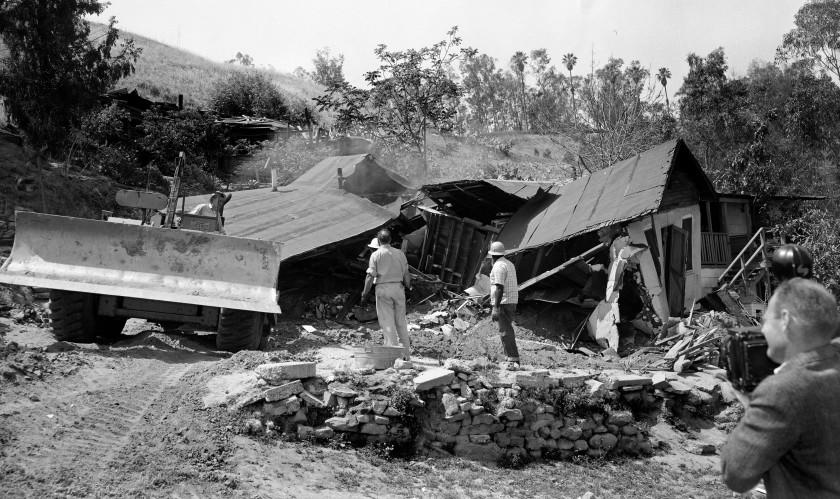Letters to the Editor: Why are some Latinos shrugging off the racist history of Dodger Stadium?

- Oops!Something went wrong.Please try again later.
To the editor: To the Latinos today who merely shrug at the injustices suffered by their ancestors to make way for Dodger Stadium before 1962, I would say watch some film showing how that proud community was summarily destroyed to line the pockets of a baseball team. ("They ran out into Dodger Stadium to remind L.A. of a dark moment in Latino history. But fans booed," column, Sept. 23)
However, today I see how so many Latinos have adopted a rather cavalier attitude about that history. I watched those families being forced from their homes with so much anger while in junior high school in Texas. I vowed never to embrace that team.
Fernando Valenzuela was a great pitcher and obviously a great asset to the local Latino community, but what does that have to with men and women being forced out of their homes with their young children looking on in horror?
Maybe it is high time to consider reparations for the relatives of those whose homes were taken. Who knows? Maybe even those diehard Dodger fans would qualify for some of the loot.
Homer Alba, Glendale
..
To the editor: Latinos have long been the victims of discrimination and injustice in Los Angeles, including the mass deportations of the 1930s, dislocation for freeway construction in the '50s and '60s, and forced sterilization in the '70s.
But the Dodgers get a bum rap for destroying the homes in what is commonly known as Chavez Ravine.
The city cleared the area to make way for public housing, but voters overturned those plans. The land stood dormant for several years as the city struggled with other uses for the property. When the Dodgers expressed interest, only a few homes were left.
For the sake of accurate history, blaming the Dodgers for the uprooting of Chavez Ravine is a blatant balk.
John Echeveste, Los Angeles
This story originally appeared in Los Angeles Times.

